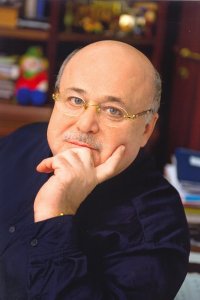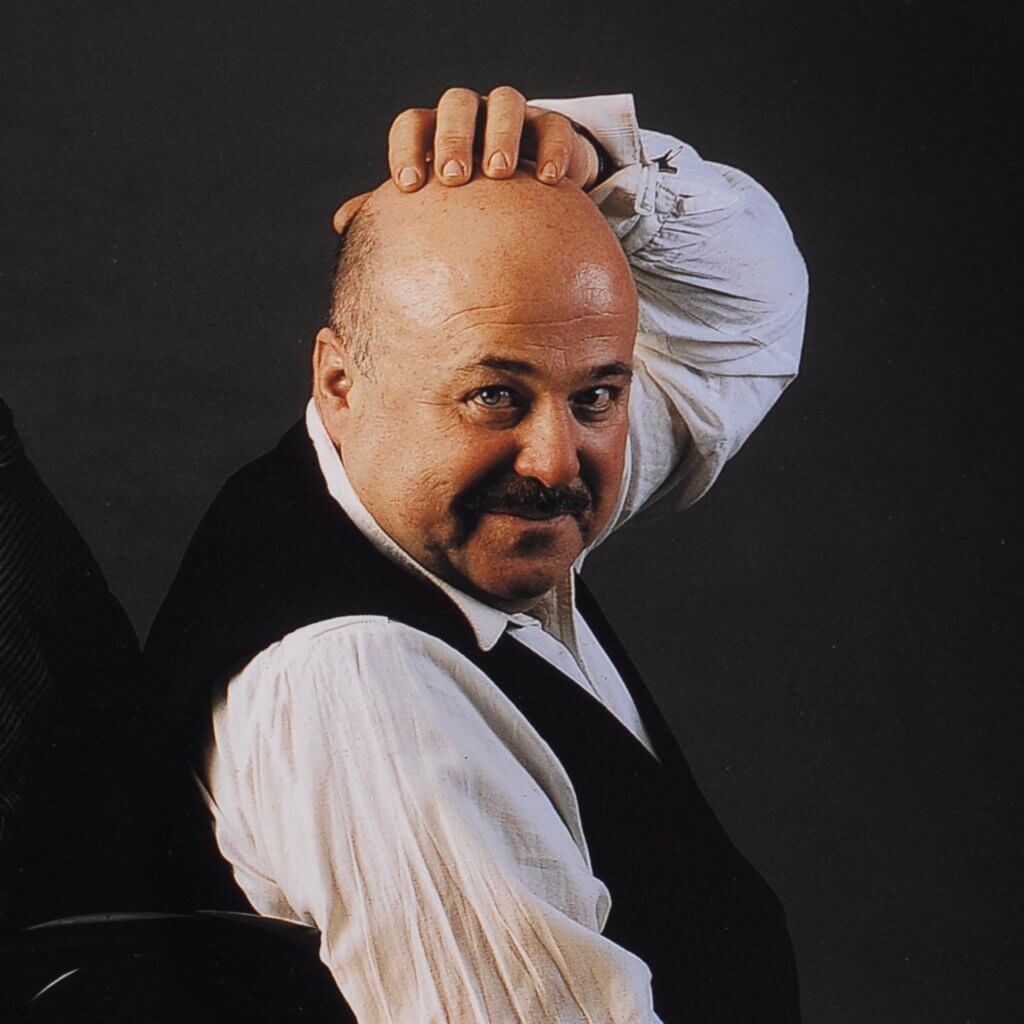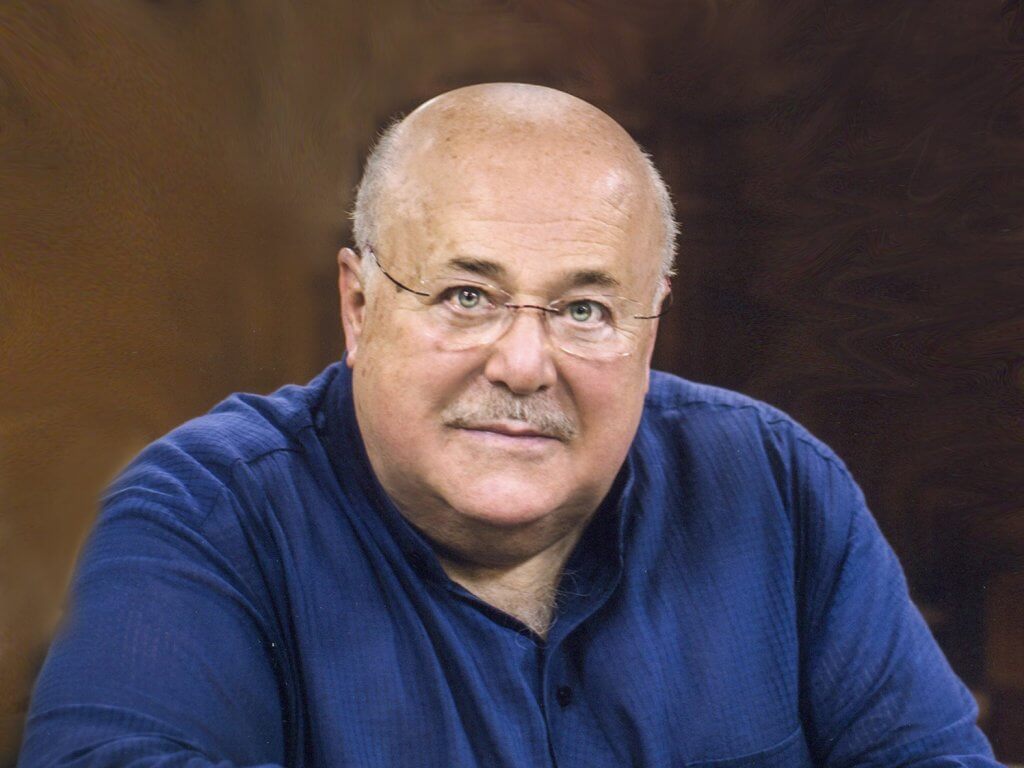Five Evenings with Alexander Kalyagin

We met the wonderful man Alexander Kalyagin last year when he came to our sunny island as an honoured guest of the II International Theatre Festival, Five Evenings in Cyprus. Having a chance to speak with him offers a unique moment of happiness and sincere joy in getting to know each other. Yet, it is also the opportunity to give him Cyprus, with its generous nature and hospitality; to please him with the national cuisine and surprise him with cultural events.
On the eve of the III festival, which will be held from February 20th to February 24th in the largest cities of Cyprus, we are speaking with the people’s artist of the Russian Federation, the chairman of the Union of Theatre Workers of Russia and the artistic director of the Moscow Et Cetera Theatre about faith, fate and personal victories about the relevance of Russian classics.
You have a beautiful name; one of the characteristics of which is the desire for a goal and its achievements. What do you consider your true victories and how do you feel about life’s mistakes?
I like my name – Alexander. That was the name of my father, who only gave me the name, as he died before my birth. As for victories, what to call victories? Maybe the resulting roles and staged performances that created the theatre? Perhaps, the construction of our beautiful theatre building is a victory? All of these are victories, each of which was not easy. However, everything that can be called a victory does not come easy. My family, my children, my grandchildren – these are also victories and, perhaps, the most important one.
 Do you believe in fate? What leads you through life?
Do you believe in fate? What leads you through life?
As each person probably believes, in any case, sometimes I repeat well-known idioms, like “fate as it is brought” or “fate as it is presented”. As is my intuition, I have the ability to look at any situation with humour and also with self-irony that leads me through life.
They say, about you, that you are a virtuoso, an actor from God and can play anything. What are the brightest moments on stage and in the movies that you remember?
More importantly, the “bright moments” of my acting are remembered by the audience, so that, after the performance, people do not forget about my character for a minute after leaving the theatre. It would be desirable that their feelings were affected and there was a desire to think, so that thoughts were born.
 Tell us how the idea of creating the Moscow Et Cetera Theatre was born and what place does it take in your life?
Tell us how the idea of creating the Moscow Et Cetera Theatre was born and what place does it take in your life?
I ran an acting course at the Moscow Art Theatre School-Studio, where talented people gathered. After completing the course, someone got a job at the theatre and a large group of graduates decided not to disperse, instead beginning to rehearse and, soon, they called me to see what they had done. I came once, twice, three times! Then, they asked me to give my name to the poster. So, it all spun out of control! There was no room and no official status. There was practically nothing but a group of enthusiasts who decided to build their own theatre. Three years later, we were actually given a room on Novy Arbat (the former conference hall, which was not very well adapted to our goals), but this was also a great success. In 2005, we moved into a new building, specially built for our theatre.
I once said: “Et Cetera is a lively open-air theatre, existing outside of any tenets, rigid ideas or articulated theatrical manifestos.” Indeed, we have lived this way for 25 years, trying to have unexpected names in our repertoire, to discover new authors and to work with outstanding directors and artists. This is something that we did.
I like to repeat: “In the theatre, everything is possible, except for boredom and vulgarity.” It seems to me that this simple formulation opens up tremendous opportunities for creativity, but, on the other hand, it, nevertheless, sets the framework for something which is better not to speak of.
What place does theatre occupy in my life? I remember how one of the journalists called the theatre Et Cetera a “favourite toy” of Kalyagin. “Favourite” yes, but not a “toy”. It takes too much effort and work.
You celebrated your anniversary in your own theatre with the premiere of the play ‘‘Inspector. Version’’. How did you feel in the role of Khlestakov?
(Laughs.) In this role, I felt like a Gogolian character by the name of Khlestakov; invented by director Robert Sturua and performed by artist Alexander Kalyagin.
What do you think are the international theatre festivals for Russian and world culture?
International festivals are of great importance for the unification of theatres from different countries. Such events provide an opportunity to meet, exchange views, start a dialogue and start a discussion. Festivals strengthen ties and popularise our theatrical culture. This is all beautiful.
What is your impression of our previous festival ‘‘Five Evenings in Cyprus’’?
I liked the atmosphere. It is warm, friendly and, at the same time, creative. Still, it is, truly, gathered professional people who are interested in each other.
2019 was declared the Year of Theatre in Russia. The International Theatre Festival ‘‘Five Evenings in Cyprus’’, continuing the best traditions of Russian culture, for its part, is trying to draw attention to issues related to spiritual values, looking for points of contact between countries through theatrical art. Can we, in foreign countries, rely on the support of the Union of Theatre Workers, from which we need so much?
I think that the Union will support your festival and what exactly this support will consist of, we will have to discuss.
The program of the upcoming III festival is lovingly composed of performances based on works of Russian classics (Pushkin, Gogol, Dostoevsky, Bunin). How much is it in demand and relevant today?
A classic is, therefore, a classic because it is always relevant. Classical texts do not become obsolete and each generation discovers something new in them that is consonant with its time. Therefore, I am convinced that the performances of the works of the great Russian writers will be of interest to contemporary audiences, who will find answers to many of their questions in each of them. I wish your festival to be informative and vivid, as well as the most diverse and memorable theatrical event of the year for Cyprus.
Let me thank you for participating in the II International Theatre Festival ‘‘Five Evenings in Cyprus’’ and express my great hope to see you as an honoured guest at our next festival!
“Three sketches of Lucian Freud” by Francis Bacon
Francis Bacon was an English expressionist painter and a master of figurative painting. His triptych, in 2013, became the most expensive work of art in the world. “Three sketches of Lucian Freud” was sold at Christie’s auction for a record sum of 142 million dollars.
The triptych, created by the artist in 1969, was auctioned for the first time at a pre-sale estimate of 85 million dollars. Bidding lasted only six minutes and the auction house did not disclose the identity of the buyer. Each part of the triptych has the same size of 198×147.5 cm. Each canvas depicts Lucien Freud in different poses, while seated on a chair is the artist Lucien Freud. The background is orange-brown, which is brighter than normal for the works of Bacon.
“Number 5” by Jackson Pollock
“Number 5” was completed in 1948 and utilised the technique of spraying, which is the corporate style of the artist. The picture size is 243.8×121.9 cm and is mounted on fibreboard (hardboard).
In 2006, at an auction organised by the auction house Sotheby’s, it was sold for 140 million dollars. It is believed that the hype surrounding this painting was created artificially. All of the paintings of Jackson Pollock were presented in museums and sold freely. Yet, “Number 5” was hidden and shown only when all of the other artworks were sold.
Consequently, the price of the painting went up to the heavens and broke many records. The original painting was in a private collection and was then exhibited in the Museum of Modern Art in New York. It then became the property of producer David Geffen. Who sold it for $ 140 million? According to unconfirmed reports, it was a famous Mexican billionaire.









